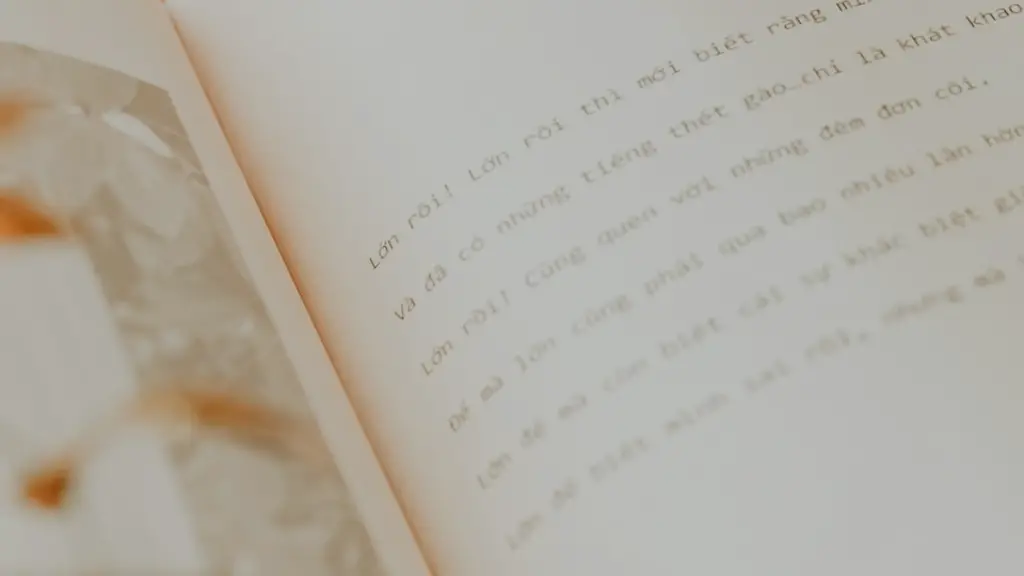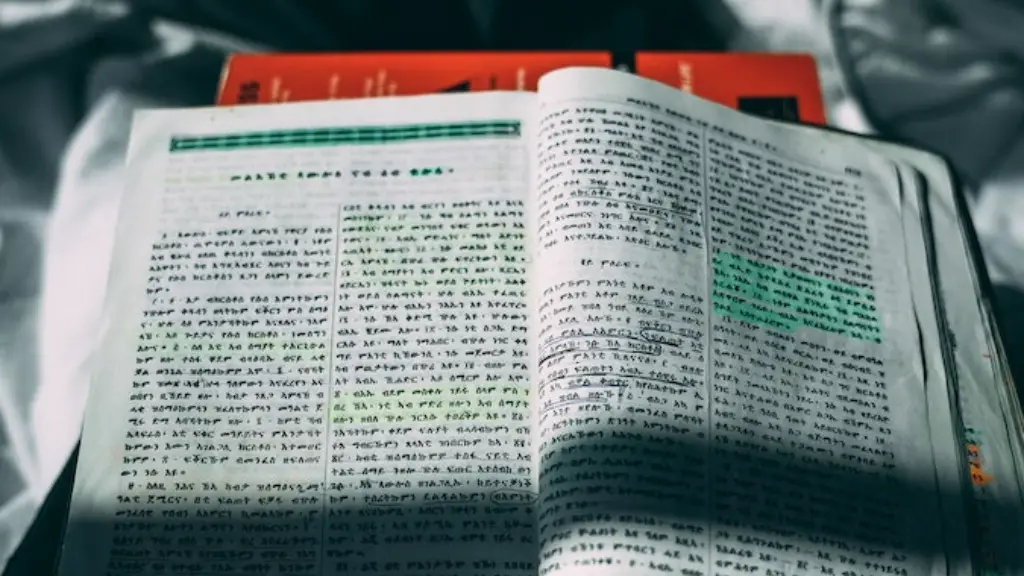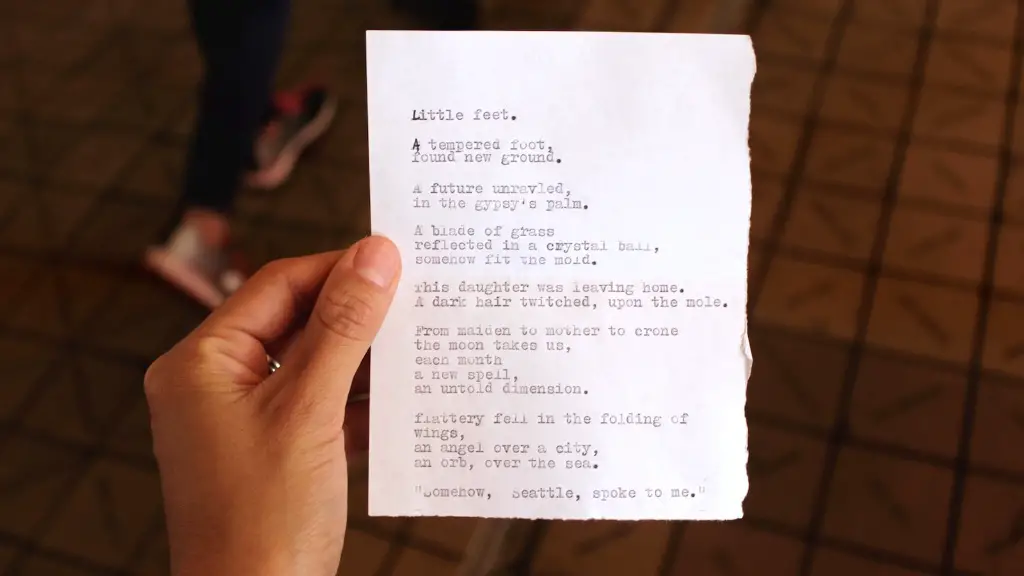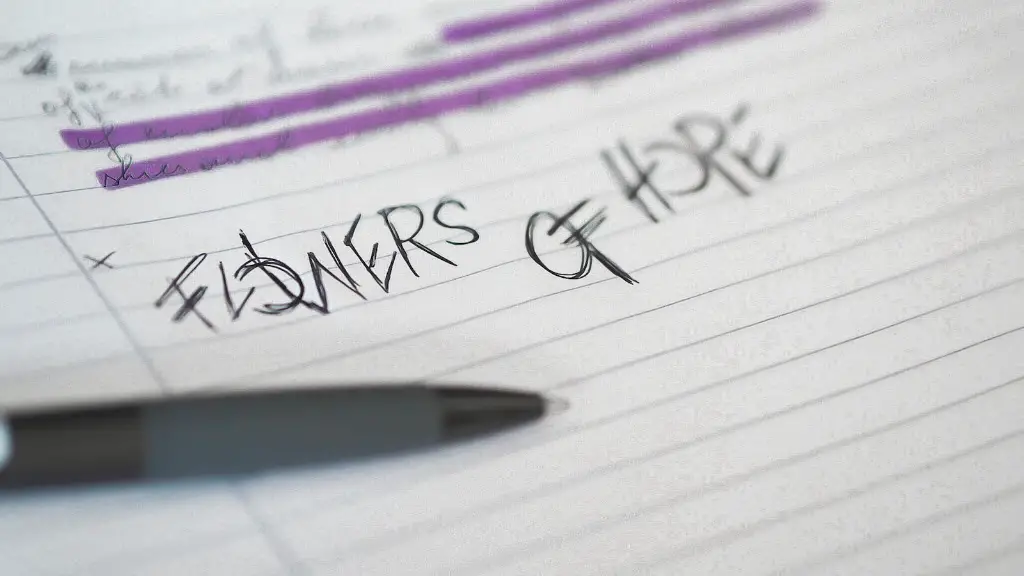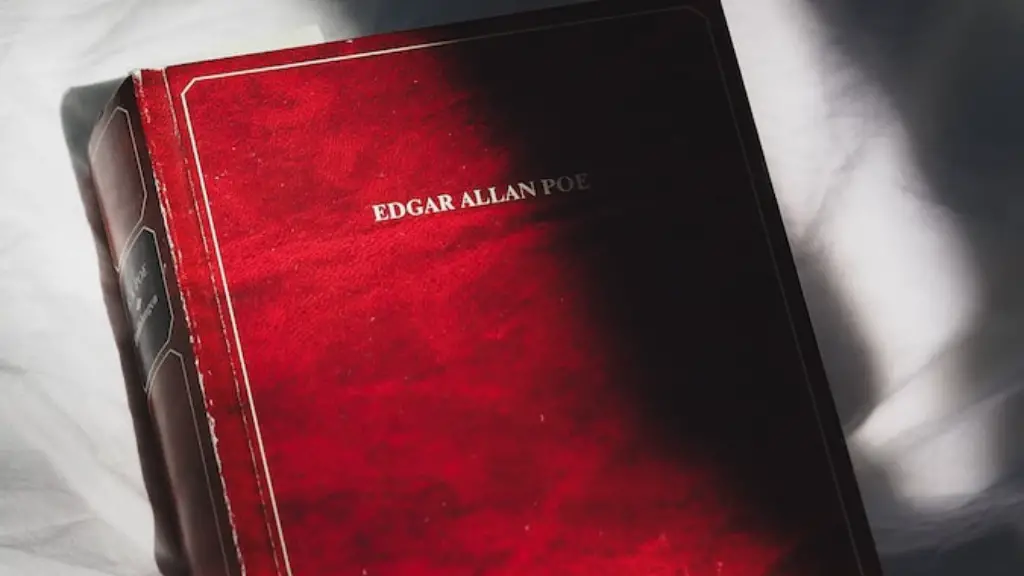Early Career Of Langston Hughes
Langston Hughes was one of the most iconic poets of the Harlem Renaissance and one of America’s foremost poets of the 20th century. A prolific author, Hughes wrote and published dozens of books and plays, including novels, short stories, poems, and essays. He is perhaps best remembered for his work about African Americans living in the United States during the era of racial segregation and racism.
Hughes began writing poetry in his early teens and had his first poem published in 1921, while still in high school. After graduating, he joined a literary community in Washington, DC, where he honed his craft. In 1925, Hughes published his first book of poetry entitled The Weary Blues, and his reputation as a poet grew rapidly. His poetry often featured vivid imagery, combining jazz, blues, and everyday life in a distinctive style to tell stories of the African American experience, and his work showed his deep commitment to the civil rights struggle of his time.
Style and Legacy of Langston Hughes
Hughes is best known for his work that touched on the themes of Black identity and justice. His poetic style combined both the blues and jazz to create a unique voice that echoed in many circles of both literature and music. He was a master of free verse, a poetic form that does not adhere to any specific structure or meter. He often wrote from the perspective of the African American, focusing on topics such as segregation, discrimination, and the suffering experienced by the community.
Drawing on a variety of different poetic techniques, Hughes created expressive works that often contained messages of hope and solidarity among African Americans. His influence on American literature is undeniable, and his powerful words have continued to inspire generations of poets and readers.
Significance of Hughes’ Work
Hughes’ work championed progressive through the challenging status quo of segregation and racism. His work elevated the plight of African Americans, while constantly pushing the boundaries of what was socially acceptable or ‘the norm’. He used his poetry to explore and express his support for civil rights and justice, inspiring generations. In doing so, he used unique words and phrases to capture the unique aspects of the African American experience and culture.
In his most famous works, Hughes wrote of the pride and joy of African American life, as well as the sadness and frustration of living under discrimination and racism. He is also remembered for his jazz poetry, which blended the rhythms of jazz and blues music with his writing. His work has been widely anthologized and celebrated, and his words are still relevant today.
Poetry As A Means of Resistance
In addition to writing poetry, Hughes was a highly political figure and a vocal advocate of civil rights. He was an early champion of integration and employed his writing as a form of resistance. Through his work, Hughes sought to challenge the status quo and raise awareness of the particular challenges faced by African Americans. Hughes was particularly inspired by the Harlem Renaissance and its writers, who sought to use their art to express their experiences of life. He also wrote about topics such as race, poverty, and social injustice, furthering the cause of African Americans.
Hughes was not content with just writing about political change, however. He was also actively involved in campaigns and protests, and was arrested in 1948 during a march in Washington, DC. He used his celebrity status to draw attention to important issues and support those who were discriminated against. He believed that there was a crucial need to speak out against bigotry, and his influence continues to be felt today.
Poetic Techniques of Langston Hughes
In his poems, Hughes made use of different techniques to convey his themes. These techniques included avoiding traditional poetic structures, using everyday street language, and drawing on his own personal experiences. He often wrote in free verse, which allowed him to capture the unique rhythms and sound of African American life. He used both serious and humorous language in his poetry to explore the wide range of emotion experienced by African Americans. Hughes also frequently used the blues and jazz rhythms in his work, evoking a more emotional tone.
Hughes’ use of language was unique and succeeded in conveying his stories and ideas to both African Americans and diverse audiences. His writing was considered powerful and revolutionary, and was integral to the Harlem Renaissance. His writing style, along with his political activism, remains an important example for African American writers today.
Global Impact Of Langston Hughes
Langston Hughes was a major influence in contemporary literature and culture. His poetry was celebrated not only in America but all over the world, particularly in Europe and Africa. His poetry was praised for its mastery of meter and composition, combined with his own words and voice. People were drawn to his inclusive approach, as well as his expressions of resilience and faith in African Americans.
Hughes’ legacy lives on in the form of scholarships and literary awards bearing his name. He is honored in various cities with museums, galleries, and festivals dedicated to his work. His words, themes, and ideas remain relevant today, and his voice still inspires African Americans and others across the globe.
Educational Legacy of Langston Hughes
Langston Hughes wrote for both adults and children, and his work has been included in syllabi for both groups. His books and poetry are part of the curriculum in schools across the United States, as well as internationally. His writing is often read and discussed as a way to explore race, gender, identity, and culture. Themes such as integrity, perseverance, and justice are explored through his work, and his writing has become an essential part of many English class syllabi.
The impact of Hughes’ work has been felt in many areas of modern culture, including film, music, and other forms of entertainment. His influence can also be seen in visual artwork and dancing, inspiring many artists to use his work as a source of creative inspiration. Hughes’ legacy as a poet, a political voice, and a teacher is lasting, and his words continue to enlighten and entertain readers around the world.
Moonlight Jazz Poetry of Langston Hughes
At the heart of Langston Hughes’ work is the musicality of language, which he blended with jazz and blues to create a unique sound. His ‘moonlight jazz poetry’, as it is known, was a combination of his own words, often with a unique rhythm, with music from jazz and blues. With this form of writing, he conveyed the complexities of life for African Americans in a way that spoke to many audiences.
Much of Hughes’ work is set in a jazz background, and this is where he found much of his inspiration. His work is often cited as an influence on jazz and blues, and singers often used his poems to write and perform their own songs. Hughes’ music was central to his success, and his influence continues to be felt in music today.
Conclusion
Langston Hughes was a groundbreaking poet and activist who championed civil rights, advocating for African Americans during the era of segregation and racism. His work speaks to people all over the world, and he is remembered for his skillful blend of poetry and music, particularly in his ‘moonlight jazz poetry’. His words and themes remain relevant, and his influence continues to be felt in art and literature today.
